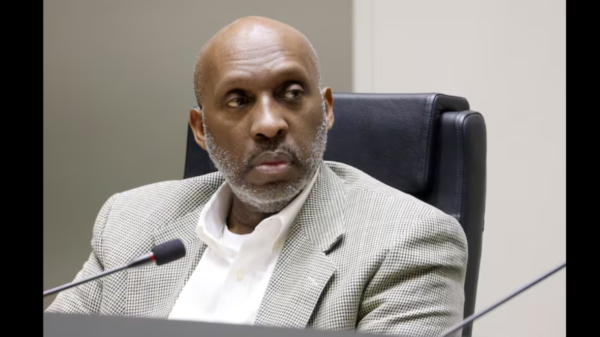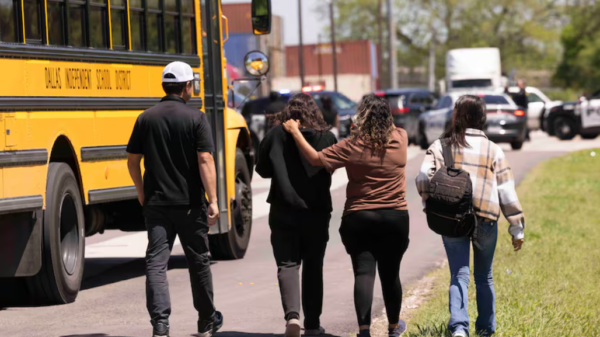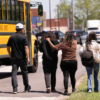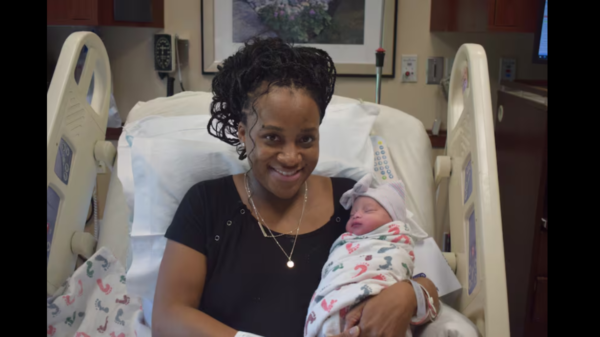
Dallas may expand a program to fund home repairs and sewer and water infrastructure improvements in three historic Black neighborhoods to other parts of the city.
The program, approved by the City Council last December, is funded with more than $11.2 million in federal COVID relief money as part of the city’s American Rescue Plan Act Neighborhood Revitalization Program. It’s meant to fund work in the historic Tenth Street, Joppa and Five Mile neighborhoods. The city’s housing department as of Thursday lists five homes where repairs are underway.
But now there’s interest from residents and council members to expand the boundaries of the areas where low- and moderate-income homeowners could be eligible for home repairs, said Thor Erickson, area redevelopment manager for the city’s housing and neighborhood revitalization office.
The program was designed to preserve Dallas historic homes and areas founded as freedmen’s towns. In September 2021, when funding for the program was proposed by council members as a budget amendment, some questioned why other areas in the city founded as freedmen’s towns, like Elm Thicket-Northpark near Dallas Love Field and Hamilton Park in Lake Highlands, weren’t also included.
The areas in the current plan — located in the southern half of the city with predominantly Black and Hispanic residents — have long been underserved. Some parts of these neighborhoods lack basic infrastructure, like sidewalks, and have aging water or sewer systems.
Several of the homes have been owned by the same family for decades.
The program offers up to $100,000 in grants for owners of single-family homes built no earlier than 1959. Eligible households must earn no more than 80% of the area’s median income. In the Dallas area this year, that means a single person can’t earn more than $54,560 a year; a family of two can earn no more than $62,400; a family of three can earn no more than $70,160; and a family of four can earn no more than $77,920 to be eligible for assistance.
The program’s budget calls for $6 million for home repairs, $4.7 million for infrastructure improvements and $550,000 for program administration costs. The ARPA money has to be allocated by the end of December 2024.
But the City Council on Wednesday approved a series of amendments to the program, adding the option of extending it to other areas of the city in Qualified Census Tracts. These are areas designated by the U.S. Department of Housing and Urban Development where the poverty rate is at least 25% or at least half the households earn less than 60% of the area median gross income.
The changes would also allow households outside of Qualified Census Tracts that have been disproportionately impacted by COVID-19 and receive federal benefits like Section 8 vouchers, supplemental security income and supplemental nutrition assistance program benefits into the program. And sidewalks were added as part of the eligible infrastructure improvements.
But widening the net would require more federal relief money, Erickson said. Council members could use $1 million they each control in ARPA discretionary money to pay for the expansion, he said, and the city could also divert unused ARPA money from other projects.
“There is no widespread expansion of the program until one of those two things happen,” Erickson said. “As of right now, it’s a what-if scenario.”
That could mean up to $10 million more in reallocated ARPA money through December 2023.
The city has approved more than 50 applications from residents in the three neighborhoods that already qualify for the program, according to Erickson. The city set a goal of aiding 60 households — 20 in each neighborhood — with a plan to allocate $2 million in repairs for each neighborhood. Any qualified applications above that will be put on a wait list.
Five homes, three in Tenth Street and two in Five Mile, are listed by the housing department as of Thursday as undergoing repair work.
The council decision Wednesday also expands the eligibility area in the Tenth Street Historic District to include The Bottom neighborhood nearby.
“Some applications for homes that met the criteria for repairs weren’t accepted because they were just outside of Tenth Street,” Erickson said.
The city already has a program to repair homes in Tenth Street, which is a city historic district. That program is funded through money from the U.S. Department of Housing and Urban Development.
But the program is underutilized. The housing department in October reported to council members that the program had a goal of making repairs to 14 homes between October 2021 and September 2022. Only three homes were approved for the program, but no homes were repaired.
More information about the American Rescue Plan Act Neighborhood Revitalization Program and how to apply can be found on the city’s website.









You must be logged in to post a comment Login